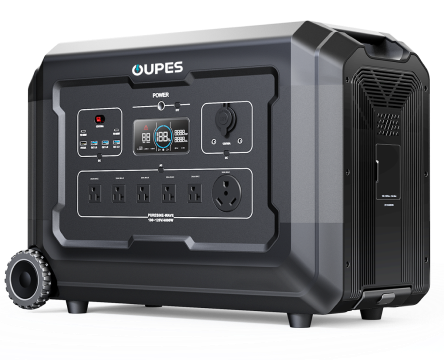Over the last few years, home solar panel systems have become increasingly popular among homeowners seeking to reduce their energy bills and transition to cleaner, more renewable energy sources. However, there is always one question that people ask: How much power can they produce?
The whole thing depends on several important factors, which we are going to consider in this article. This guide is for you if you are not sure whether to opt for a complete solar system or start with a pair of solar panels.
What Determines Solar Panel Power Output?

Let’s start with the basics. There are four significant key points that define the amount of power a solar panel can produce in a homestead:
1. Panel Efficiency: The efficiency of most residential solar panels ranges from 13 to 22.8%, with most panels having an efficiency of around 20%. Panel efficiency largely depends on its type, with standard monocrystalline panels having a much higher efficiency (18–22%), while polycrystalline panels offer a much lower efficiency of 13–17%.
2. Sunlight Exposure: The greater the exposure of your panels to sunlight, the higher the power they will produce. Houses located in sunnier places, such as California, Arizona, or Nevada, can generate more energy with their solar panels than those in cloudier regions.
3. Panel Wattage: The wattage of residential solar panels typically ranges from 100 to 400 watts. A 400-watt panel is estimated to generate approximately 1.6 to 2.5 kWh or power per day, depending on the amount of direct sunlight it receives.
4. Roof Space & Orientation: South-facing roofs with little or no shade are the best. More roof space means more panels—and more power.
For example, a 400-watt panel that receives 5 hours of bright sunlight every day will be able to produce approximately 2,000 watt-hours or 2 kWh of electricity in a day.
Average Energy Output Of These Systems
This is a quick breakdown of the approximate electricity production that a system could produce based on system size:
|
System Size |
Number of Panels (400W) |
Daily Output (kWh) |
Monthly Output (kWh) |
|
2 kW |
5 |
~10 |
~300 |
|
4 kW |
10 |
~20 |
~600 |
|
6 kW |
15 |
~30 |
~900 |
|
8 kW |
20 |
~40 |
~1200 |
This table is just for an estimate. The actual power your solar system generates can vary based on climate, panel type, and installation inclination.
Panels Alone Aren’t Enough—Pair With a Power Station
Although a stand-alone solar panel system will help you generate power, you will also need some way to regulate and store it. That is where a power station comes in. A solar battery or power station will help you store the excess electricity generated by your panels during the day, allowing you to use it at night or in the event of a power outage.
Portable power station solutions are particularly handy for people looking for an emergency backup power source for off-grid use or even camping and RVs.
How Solar Panel Kits Make It Simple
Solar panel kits are an effective and inexpensive solution, especially when you are just starting with a solar system. These kits normally consist of:
● Solar panels
● Inverter
● Mounting hardware
● Cables and connectors
● Sometimes batteries or a power station
These are plug-and-play solar panel kits designed for easy installation and are ideal for DIYers or homeowners seeking a modular system that can be expanded over time. You can begin with a 4-panel kit and later expand to a full solar system of 16 panels.
Oupes offers pre-assembled solar generator kits to eliminate the guesswork and enable you to save energy immediately.
How Much Can You Really Save?
Let’s talk numbers. The idea of going solar is not only environmentally smart, but it is also a financially smart move. Having a solar system is considered an upgrade, like having a swimming pool or a renovated kitchen.
● A complete home solar panel system can save householders $2200 per year and $10,000–$40,000 throughout their lifetime (which is around 20 years). The exact savings will largely depend on your solar panel type, their angle of installation and the climate you live in.
● Homes with solar systems sell faster than those without, and an average-sized solar system adds around $15,000 to your house’s premium.
These numbers indicate that solar energy is not only good for the environment, but also boosts your home's worth and minimizes your energy costs.
Full Solar System vs. Partial Setup
So, should you go all-in and install a complete solar system for your house, or start with a few solar panels? Remember, not all homes require complete off-griding. You can choose a hybrid approach.
● Offset part of your bill with a 2–4 kW home solar panel system
● Charge a battery backup for emergencies or peak-rate usage
● Power an RV or off-grid cabin using portable solar panel kits
Start small, or go big—the choice is yours. And with the right equipment, your transition to solar is smooth and scalable.
FAQs
How many solar panels do I need to power a house?
It all depends on the amount of energy you use. Most homes require 15-20 panels to run most of the appliances. The number of solar panels will depend on your wattage requirements, energy habits and the climate you live in.
Do solar panels increase home value?
Yes! Homes with solar systems sell faster and at a higher premium. This is like an upgrade to your home. The exact resale increase will depend on how extensive a solar panel system you have installed.
Do solar panels work on cloudy days?
Yes, but their efficiency drops significantly. Modern solar panels still produce 10–25% of their usual output on cloudy or rainy days.
How do you clean solar panels?
Use a soft brush or sponge with water, and avoid harsh chemicals. Clean in the early morning or late evening when the panels are not generating any electricity.
How much energy does a solar panel produce?
On average, a single 400-watt solar panel generates 1.5 to 2.5 kWh per day, depending on location and sunlight.
Final Thoughts
So, how much power can a home solar system generate? Depending on the number of panels you have and your location, you could potentially generate all the electricity you need, save a considerable amount on your energy bill, and have peace of mind with backup power.
Whether you are installing an entire solar system or experimenting with a couple of solar panels, one thing is clear: the future of home energy is solar.

































Leave a comment
This site is protected by hCaptcha and the hCaptcha Privacy Policy and Terms of Service apply.